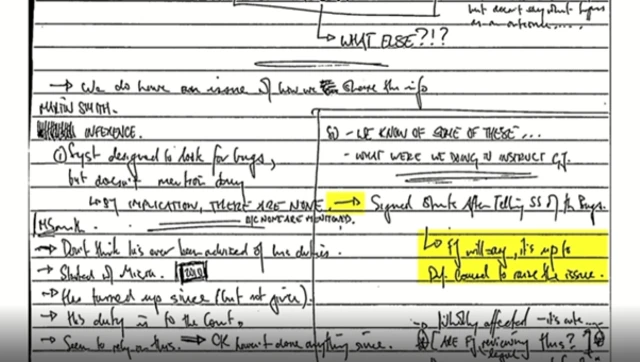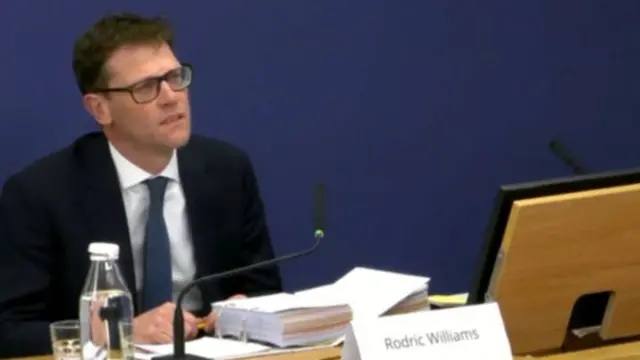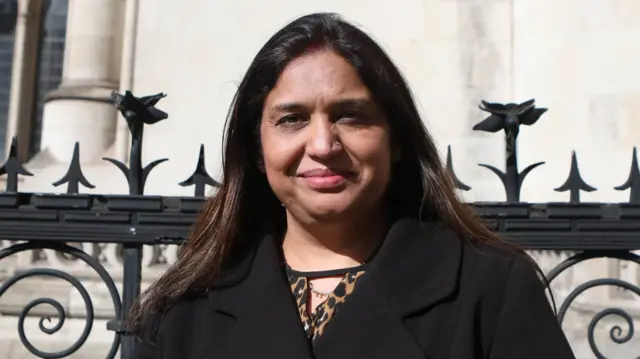A pretty damning exchange over what Post Office knew in 2013published at 16:38 BST 18 April 2024
 Peter Ruddick
Peter Ruddick
Business reporter
"I don't think any action was taken" is a pretty damning statement from Rodric Williams.
One of the exchanges between the senior Post Office lawyer and Jason Beer KC, counsel to inquiry, was all about the so-called expert advice of Gareth Jenkins.
Her was a Fujitsu technician whose statements were often used in court when prosecuting sub-postmasters.
In a long back and forth, Williams talked through a 2013 document which confirmed both he, and the Post Office, were aware those statements were problematic.
Williams was asked what happened as a result. Was this raised to the Post Office board?
Was the mediation scheme, and the sub-postmasters involved, informed? Was this raised to the Criminal Cases Review Commission?
The answers were either versions of "no" or "I don't recall".
If action had been taken, would justice have been served sooner?



